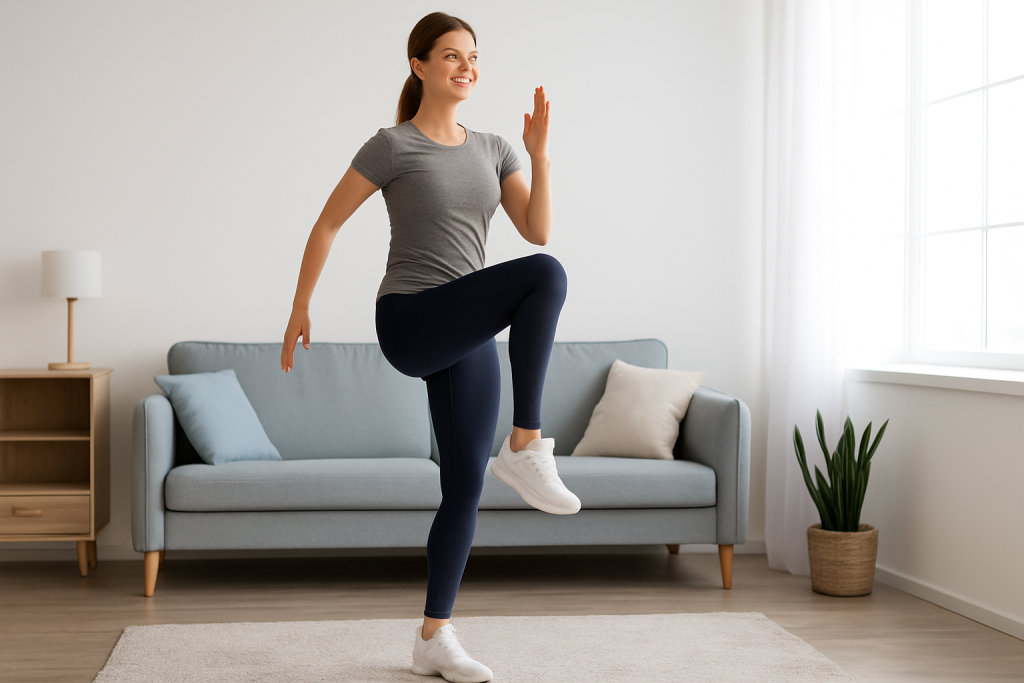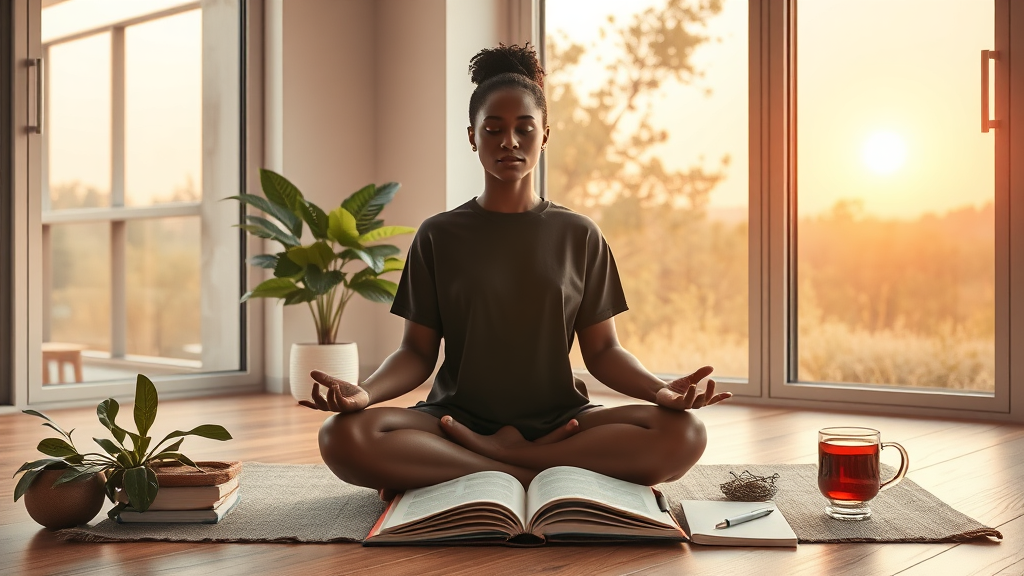
You don’t need a gym membership, expensive gear, or fancy workout clothes to start getting fit. In fact, some of the most effective workouts require nothing but your body, a little space, and a commitment to move. If you’re a beginner looking to kickstart your fitness journey, this guide will walk you through the best home workouts for beginners without equipment. Simple, effective, and totally doable from your living room or bedroom — no excuses!
Why Choose No-Equipment Workouts?
There are several reasons why no-equipment workouts are perfect for beginners:
- Cost-effective: No need to invest in weights or machines.
- Convenient: Can be done anytime, anywhere.
- Less intimidating: No complex gym machines or awkward public settings.
- Functional movement: Bodyweight exercises build strength, mobility, and balance.
- Scalable: Easy to modify as you gain strength and confidence.
Most importantly, bodyweight workouts help build the foundation for long-term fitness without overwhelming you with complicated routines.
Warm-Up: Prepare Your Body
Before any workout, warming up is crucial to prevent injury and ease your body into movement. Spend at least 5 minutes on the following:
- Arm circles – 30 seconds forward, 30 seconds backward
- Neck rolls – 15 seconds each side
- Jumping jacks – 1 minute
- High knees in place – 1 minute
- Dynamic leg swings – 30 seconds per leg
A warm-up increases heart rate, improves circulation, and prepares your muscles and joints for action.
Full-Body Beginner Workout (No Equipment Needed)
Do each exercise for 30–45 seconds, followed by 15–30 seconds of rest. Repeat the circuit 2–3 times.
1. Bodyweight Squats
Target: Legs, glutes, core
Squats build lower body strength and improve balance. They also mimic everyday movements like sitting and standing.
How to do it:
- Stand with feet shoulder-width apart.
- Lower your hips as if sitting back into a chair.
- Keep your chest lifted, knees tracking over your toes.
- Press through your heels to stand back up.
Beginner Tip: Use a chair behind you for guidance and safety.
2. Wall Push-Ups
Target: Chest, shoulders, triceps
Follow our social media to get an daily update!
Perfect for those who find regular push-ups challenging, wall push-ups help build upper-body strength without strain.
How to do it:
- Stand arm’s length from a wall.
- Place hands on the wall, shoulder-width apart.
- Lower your chest toward the wall, then push back.
Progression: As you get stronger, transition to incline push-ups on a sturdy table or countertop.
3. Glute Bridges
Target: Glutes, hamstrings, lower back
Great for strengthening your posterior chain and improving core stability.
How to do it:
- Lie on your back with knees bent, feet flat on the floor.
- Arms by your side, palms down.
- Lift your hips toward the ceiling, squeeze your glutes at the top.
- Slowly lower back down.
Add a challenge: Try single-leg bridges once you’re comfortable.
4. Modified Plank (Knees Down)
Target: Core, shoulders, back
Planks build total body strength, especially in the core — the foundation of all movement.
How to do it:
- Start on hands and knees.
- Walk your hands forward slightly and lift your hips.
- Keep your back flat, abs tight, and hold.
Avoid: Letting your lower back sag or lifting your hips too high.
5. Standing March or Jog in Place
Target: Cardio, legs
Boost your heart rate and keep your body moving without impact.
How to do it:
- March in place with high knees.
- Pump your arms for added intensity.
- Breathe steadily.
Boost it: Turn this into a light jog or high knees if you want more of a challenge.
6. Standing Side Leg Raises
Target: Outer thighs, glutes, balance
Excellent for hip strength and stability.
How to do it:
- Stand tall, hold onto a chair or wall for balance.
- Lift one leg to the side, keep toes pointed forward.
- Lower slowly and repeat, then switch legs.
Pro Tip: Go slow and controlled to maximize the burn.
7. Superman Hold
Target: Lower back, glutes, shoulders
Helps counteract the effects of prolonged sitting and builds posterior strength.
How to do it:
- Lie face down, arms extended in front.
- Lift arms, chest, and legs off the ground simultaneously.
- Hold for 10–20 seconds, then release.
Variation: Flutter your legs and arms for a “Superman swim.”
Cool Down and Stretching
Finish every workout with a short cooldown to lower your heart rate and improve flexibility.
Cooldown suggestions (5–10 minutes):
- Child’s pose (1 min)
- Cat-cow stretches (1 min)
- Standing forward fold (1 min)
- Neck and shoulder rolls
- Deep breathing
Weekly Beginner Workout Plan
Here’s a simple schedule to follow for the first 2–4 weeks:
| Day | Focus |
|---|---|
| Monday | Full-body circuit |
| Tuesday | Rest or gentle walk |
| Wednesday | Full-body circuit |
| Thursday | Core & flexibility |
| Friday | Full-body circuit |
| Saturday | Active recovery (yoga, stretching) |
| Sunday | Rest |
As you progress, increase duration, reduce rest times, or add more circuits to continue building strength and stamina.
Tips for Staying Consistent
- Set realistic goals – Start with 15–20 minutes and build up gradually.
- Track your progress – Use a journal or app to log workouts.
- Create a dedicated workout space – Even a small corner can help build routine.
- Listen to your body – Rest when needed and modify movements.
- Celebrate wins – Every completed workout is progress!
Common Mistakes to Avoid
- Skipping the warm-up: Always prepare your body before jumping in.
- Holding your breath: Breathe deeply and consistently during movement.
- Pushing too hard too soon: Build a solid foundation before trying advanced moves.
- Not focusing on form: Quality over quantity — proper form prevents injury.
Conclusion: Your Fitness Journey Starts Today
Starting a home workout with no equipment is one of the most empowering choices you can make for your health. It’s accessible, low-pressure, and completely customizable to your needs. You don’t need perfection, just commitment and a willingness to keep showing up.
As you grow stronger and more confident, these simple movements will form the base of a lifelong fitness habit. Remember — every rep counts, every drop of sweat matters, and the best time to start is now.



